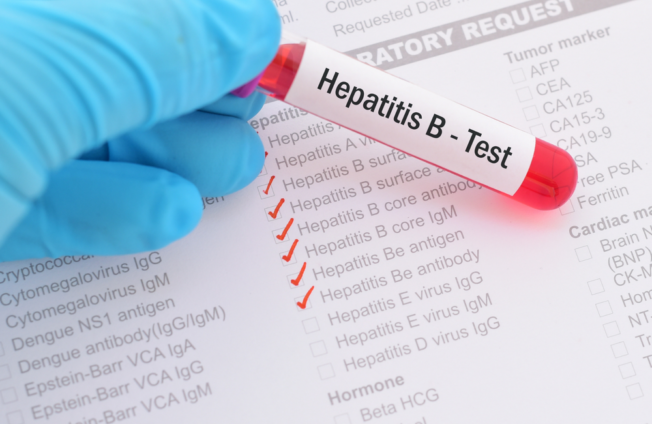In his village, Uwasi, in Ghana’s Upper East Region, Thomas Abanga, 27, has seen all too often how viral hepatitis can bring tragedy.
“I have attended funerals of friends and family members who died from viral hepatitis. So, when I was diagnosed with hepatitis C, I lost hope and thought I would die anytime soon,” says Thomas.
However, two years after his diagnosis, Thomas is living healthily, thanks to Ghana’s growing hepatitis C response.
Hepatitis is an inflammation of the liver, with causes including viruses and other infections, alcohol and certain drugs. It leads to a range of health problems, some of which can be fatal.
Globally, 90% of people living with viral hepatitis do not know they have it, and 3,000 people die of the disease every day. WHO’s global hepatitis strategy, endorsed by all WHO Member States, aims to reduce new hepatitis infections by 90%, and deaths by 65% between 2016 and 2030.
In 2019, an estimated 1.2 million new hepatitis infections and 125,000 hepatitis- B and C related deaths occurred in the African Region. In recognition of this burden, the need for a comprehensive response is included in the Framework for an Integrated Multisectoral Response to TB, HIV, STIs, and Hepatitis in the WHO African Region, where more than 91 million Africans are living with hepatitis.
Poverty and inequality leave people vulnerable to infection
In Ghana, viral hepatitis is a major health concern for health authorities. Hepatitis B is hyper-endemic, with an estimated prevalence in the population of 9.1%. Hepatitis C also poses a high burden, with an estimated prevalence of 3.3%.
Hepatitis disproportionately affects the people of northern Ghana. Here, poverty and inequitable access to quality healthcare services mean people are more vulnerable to infections than in other parts of the country.
At present, there is no effective vaccine against hepatitis C. However, early diagnosis and treatment can cure over 95% of people, which also helps prevent further transmission of the virus. In Ghana, despite high rates of infection, testing and treatment for hepatitis B and C have historically been very low due to the high costs of services and limited access to treatment. This is now changing due to a dedicated effort by the government to tackle the disease.
Taking action to prevent and treat viral hepatitis
The increasing burden of hepatitis infections requires urgent action at all levels to protect people and communities. In 2017, the Ministry of Health and the Ghana Health Service, through the National Viral Hepatitis Control Programme (NVHCP), and with support and technical guidance from WHO, developed national guidelines for the prevention, care and treatment of viral hepatitis.
Dissemination of these guidelines has helped to improve the knowledge of healthcare workers and bridged gaps in access to treatment, as there were limited healthcare workers able to administer treatments across the country. Progress has been made but more health-worker training is needed.
In March 2023, the government of Ghana, with support from the government of Egypt, WHO, and other partners, launched the ‘STOP Hep C Ghana Project’. This initiative reaches out across the nation, from cities to villages, providing free treatment for hepatitis C across all levels of care to all Ghanaians with active infection.
The STOP Hep C Ghana project has provided life-changing hepatitis C drugs and regular counselling from treatment locations to 220 people close to where they live. A further 780 people are also expected to benefit from free treatment project by the end of 2023.
“The hepatitis C treatment project is the first person-centered intervention by the government that responds directly to the needs of people affected by hepatitis. We are exploring partnerships to support delivery so that eliminating hepatitis in Ghana can be put on sound footing,” says Dr Atsu Seake-Kwawu, Programme Manager of the NVHCP.
In addition, the country is making strong progress to combat hepatitis B, for which there is a vaccine. Ghana has 99% coverage through the infant routine vaccination programme, and is planning to introduce the hepatitis B vaccine at birth soon. Additionally, a testing and treatment programme for hepatitis B is being proposed.
In line with its guidelines, WHO has provided financial and technical support to the NVHCP since 2011, including capacity building for healthcare workers and awareness raising on how to manage and prevent hepatitis.
“As WHO, we are excited that the fight against viral hepatitis is fast gaining momentum in Ghana. Alongside efforts to make treatment available across the country, we continue to support Ghana to do more on viral hepatitis prevention and risk reduction,” says Professor Francis Kasolo, WHO Representative to Ghana.
Latest Stories
-
Ghanaians to enjoy reliable electricity this Christmas – ECG promises
3 minutes -
Police deny reports of election-related violence in Nsawam Adoagyiri
7 minutes -
‘We’re not brothers; we’ll show you where power lies’ – Dafeamekpor to Afenyo-Markin
10 minutes -
EPA says lead-based paints are dangerous to health, calls for safer alternatives
2 hours -
Queenmother calls on President-elect Mahama to appoint more women in his government
4 hours -
Atletico Madrid beat Barcelona to go top of La Liga
4 hours -
Usyk breaks Fury’s heart with points win in rematch
4 hours -
Ghana-Russia Centre to run Russian language courses in Ghana
10 hours -
The Hidden Costs of Hunger: How food insecurity undermines mental and physical health in the U.S.
10 hours -
18plus4NDC marks 3rd anniversary with victory celebration in Accra
13 hours -
CREMA workshop highlights collaborative efforts to sustain Akata Lagoon
13 hours -
2024/25 Ghana League: Heart of Lions remain top with win over Basake Holy Stars
14 hours -
Black Queens: Nora Hauptle shares cryptic WAFCON preparation message amid future uncertainty
15 hours -
Re-declaration of parliamentary results affront to our democracy – Joyce Bawah
15 hours -
GPL 2024/25: Vision FC score late to deny Young Apostles third home win
15 hours

